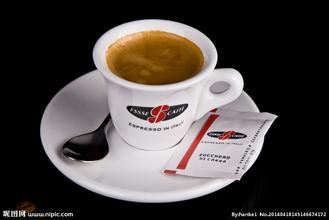Introduction of manor in Burundian coffee producing area with spicy aftertaste
The chaos of Burundian coffee has been going on for a long time, with a large number of old and new raw beans mixed together, making this coffee unsuitable for grading. This coffee is rough but mild, and has characteristics similar to Kenyan coffee. The flavor is sweet and fruity, with a slightly spicy finish.
Dry aroma (1-5): not applicable
Wet aroma (1-5): not applicable
Acidity (brightness) (1-10): not applicable
Taste (layered) (1-10): not applicable
Taste (alcohol thickness) (1-5): not applicable
Aftertaste (residue) (1-10): not applicable
Balance (1-5): not applicable
Base score (50): not applicable
Total score (maximum 100): not applicable
Strength / main attributes: medium strong / sweet, fruit flavor, spicy aftertaste.
Recommended baking degree: full city
Contrast: it is very similar to Kenyan coffee. Londi coffee bears a striking resemblance to neighboring Rwanda, where coffee produced by the two countries is often confused. Burundian coffee is mainly grown in bourbon, with traditional wet processing of coffee cherries. Its boutique coffee is characterized by elegant sweetness and bright citrus aromas.
Burundi is a small landlocked country located at the junction of eastern and central Africa, across the Nile and Congo basins, dominated by hills and mountains, with excellent coffee-growing elevations. The history of coffee cultivation in Burundi is not long, its coffee planting industry is carried out entirely in the form of small family farms, there is a great difference in quality, and years of war and social unrest have made its coffee planting industry very chaotic. But I have to admit that it has the potential to produce high-quality coffee.
Burundi Buyendi AA,FWS

Important Notice :
前街咖啡 FrontStreet Coffee has moved to new addredd:
FrontStreet Coffee Address: 315,Donghua East Road,GuangZhou
Tel:020 38364473
- Prev

Introduction to the taste of Puerto Rican boutique coffee beans with unique flavor
In fact, any kind of coffee will be given a unique flavor because of its origin, just like different music styles will always give you different feelings. Puerto Rico Yaoke coffee has the characteristics of boutique coffee, its acidity is very stable, full of particles, complete flavor, rich aroma. The reason why Yaocote chose coffee beans better than other producing areas on the island is that they are grown at high elevations.
- Next

Introduction to the Origin of Ugandan Coffee Flavor and Taste
The equator crosses Uganda and the suitable climate makes it the main producer of robusta coffee beans in the world. In the 1960s, Ugandan coffee production remained at 3.5 million bags a year. By the mid-1980s, coffee production had dropped to 250 bags a year, mainly for political reasons. But now coffee production is on the rise again, currently about 3 million bags a year. What the coffee industry is facing
Related
- Detailed explanation of Jadeite planting Land in Panamanian Jadeite Manor introduction to the grading system of Jadeite competitive bidding, Red bid, Green bid and Rose Summer
- Story of Coffee planting in Brenka region of Costa Rica Stonehenge Manor anaerobic heavy honey treatment of flavor mouth
- What's on the barrel of Blue Mountain Coffee beans?
- Can American coffee also pull flowers? How to use hot American style to pull out a good-looking pattern?
- Can you make a cold extract with coffee beans? What is the right proportion for cold-extracted coffee formula?
- Indonesian PWN Gold Mandrine Coffee Origin Features Flavor How to Chong? Mandolin coffee is American.
- A brief introduction to the flavor characteristics of Brazilian yellow bourbon coffee beans
- What is the effect of different water quality on the flavor of cold-extracted coffee? What kind of water is best for brewing coffee?
- Why do you think of Rose Summer whenever you mention Panamanian coffee?
- Introduction to the characteristics of authentic blue mountain coffee bean producing areas? What is the CIB Coffee Authority in Jamaica?

